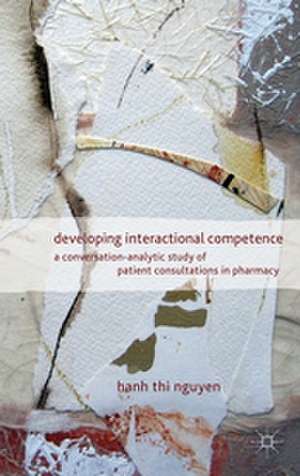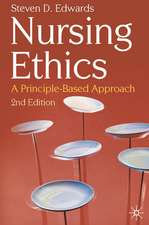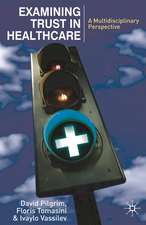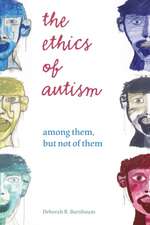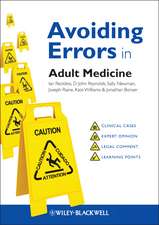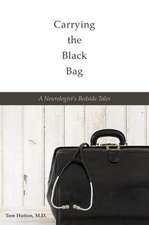Developing Interactional Competence: A Conversation-Analytic Study of Patient Consultations in Pharmacy
Autor H. Nguyenen Limba Engleză Hardback – 12 dec 2011
| Toate formatele și edițiile | Preț | Express |
|---|---|---|
| Paperback (1) | 639.73 lei 6-8 săpt. | |
| Palgrave Macmillan UK – 2012 | 639.73 lei 6-8 săpt. | |
| Hardback (1) | 644.18 lei 6-8 săpt. | |
| Palgrave Macmillan UK – 12 dec 2011 | 644.18 lei 6-8 săpt. |
Preț: 644.18 lei
Preț vechi: 757.85 lei
-15% Nou
Puncte Express: 966
Preț estimativ în valută:
123.27€ • 131.81$ • 102.77£
123.27€ • 131.81$ • 102.77£
Carte tipărită la comandă
Livrare economică 17 aprilie-01 mai
Preluare comenzi: 021 569.72.76
Specificații
ISBN-13: 9780230276697
ISBN-10: 0230276695
Pagini: 264
Ilustrații: XV, 264 p.
Dimensiuni: 152 x 229 x 23 mm
Greutate: 0.52 kg
Ediția:2012
Editura: Palgrave Macmillan UK
Colecția Palgrave Macmillan
Locul publicării:London, United Kingdom
ISBN-10: 0230276695
Pagini: 264
Ilustrații: XV, 264 p.
Dimensiuni: 152 x 229 x 23 mm
Greutate: 0.52 kg
Ediția:2012
Editura: Palgrave Macmillan UK
Colecția Palgrave Macmillan
Locul publicării:London, United Kingdom
Cuprins
Foreword by Cecilia E. Ford Acknowledgements List of Illustrations and Tables Transcription Conventions Introduction PART I: THE PHARMACY PATIENT CONSULTATION Historical Background and Impact on Healthcare Sequential Organization Topics and Topic Management Formulation of Objects and Processes Participation Frameworks PART II: THE DEVELOPMENT OF INTERACTIONAL COMPETENCE Action Sequencing Topic Management Formulation of Objects and Processes Self-Positioning in Participation Frameworks Discussion and Conclusion Bibliography Index
Recenzii
'Nguyen's book is one of the very few original contributions made by applied linguists to the debate over what constitutes learning. She reviews theories of cognitive and behavioral change, of the complementary roles of learners and teachers, and she queries the reluctance by some discourse analysts to even recognize the concept of learning. Out of this mass of conflicting claims and contradictory positions, Nguyen steps forward with a longitudinal analysis of the interactions of two novice pharmacists as they begin to exercise their professional skills in counseling patients. Do they learn? From every theoretical perspective they do. And what they learn is how to effectively counsel their patients: how to sequence their actions, how to manage topics, how to respond to their patients' concerns, how to make their expertise accessible to their patients, and how to share their patients' perspectives. Through her insightful analysis of learning in these interactions, Nguyen makes an important contribution to the learning debate and provides valuable advice for professional trainers.' - Richard F. Young, Professor in English Linguistics and Second Language Acquisition, University of Wisconsin-Madison
'This significant book applies conversation analysis (CA) uniquely to the consultation process between patients and pharmacists. Although schools of pharmacy have long embraced and taught pharmacy students to provide patient-centered consultation, repeated studies have documented that community pharmacists rarely ask patients open ended questions, tailor their consultations to patients or engage patients effectively to monitor the adverse and efficacious effects of regimens at refill times. Pharmacy schools can learn a great deal from CA's micro-analytic skills as modeled here to identify key elements in the sequence that hinder or facilitate meaningful exchanges between patients and pharmacists. Uniquely the book tracks the growing skills of two novice pharmacists in a way never before presented in Pharmacy. We have much to learn from this careful study's research approach and findings in order to better train our students and evaluate their licensure readiness.' - Betty A. Chewning, Ph.D., F. AphA Professor in Social and Administrative Sciences, School of Pharmacy, University of Wisconsin-Madison
'This significant book applies conversation analysis (CA) uniquely to the consultation process between patients and pharmacists. Although schools of pharmacy have long embraced and taught pharmacy students to provide patient-centered consultation, repeated studies have documented that community pharmacists rarely ask patients open ended questions, tailor their consultations to patients or engage patients effectively to monitor the adverse and efficacious effects of regimens at refill times. Pharmacy schools can learn a great deal from CA's micro-analytic skills as modeled here to identify key elements in the sequence that hinder or facilitate meaningful exchanges between patients and pharmacists. Uniquely the book tracks the growing skills of two novice pharmacists in a way never before presented in Pharmacy. We have much to learn from this careful study's research approach and findings in order to better train our students and evaluate their licensure readiness.' - Betty A. Chewning, Ph.D., F. AphA Professor in Social and Administrative Sciences, School of Pharmacy, University of Wisconsin-Madison
Notă biografică
HANH THI NGUYEN is Associate Professor of Applied Linguistics at Hawaii Pacific University, USA. She has published on the development of interactional competence and classroom interaction in Text & Talk, Communication & Medicine, The Modern Language Journal, and Language & Education. She co-edited Talk-in-interaction: Multilingual Perspectives and Pragmatics & Language Learning Vol. 12.
